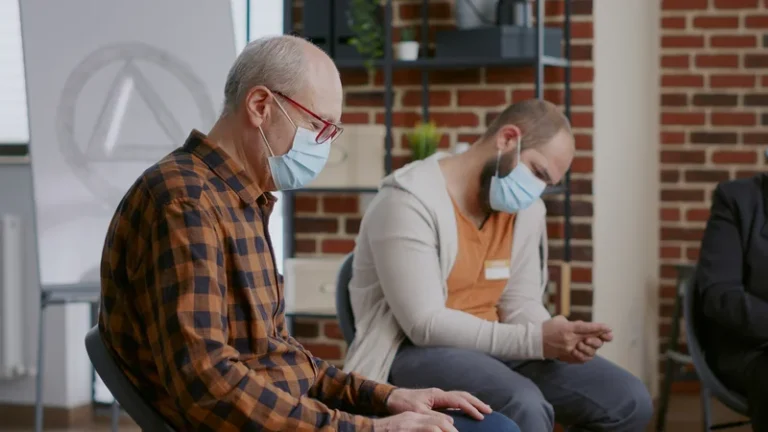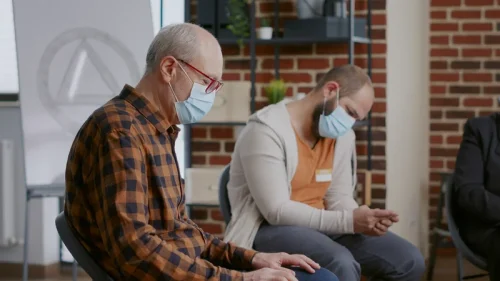
Commemorate the significant milestones of your recovery, such as the anniversary of your last use or the completion of a treatment program. Celebrate the development of new coping skills, the strengthening of relationships, or the achievement of personal goals. Setting goals can help you focus on what you want to achieve in your new life in recovery.
Managing Stress in Life After Rehab
One of the worst things you can do during life after addiction is isolate yourself from your friends, your family members, and others who helped you battle your demons. As part of your life after addiction, you should make a concerted effort to eat better. You should map out a daily menu for yourself and find ways to give your body the nutrients it needs. A career is a form of identity and rebuilding your life after addiction the field of work which a person performs will say a great deal about that person. Career counselors work with clients to narrow down what kind of job they want. Jobs with a lot of exposure to alcohol and stress, notably in the service industry, are unlikely to meet the criteria.
Limits on virtual addiction treatment may soon return, making care harder to access
Find your role models in people who once shared your https://ecosoberhouse.com/article/do-you-genuinely-like-the-feeling-of-being-drunk/ struggles but overcame them with sheer resolve. Having friends who drink alcohol or use drugs can cause you to relapse. Try to find sober friends who understand what you have been through, and help you start rebuilding your new life.

Your Recovery Is Our Priority
Overcoming addiction is a significant accomplishment — but the journey doesn’t end there. Rebuilding life after addiction is a journey of itself that requires patience, dedication, and determination. This process involves addressing the physical, emotional, and social aspects of recovery, as well as developing new coping mechanisms and a renewed sense of purpose. Spring Hill Recovery Center provides residential treatment for addiction and co-occurring mental health issues. However, some conditions may require treatment beyond our capabilities, and we reserve the right to medically discharge a patient for a higher level of mental health care. These support groups provide a sense of community and understanding as you connect with others who have gone through similar experiences.
Now is the time to finally get to work and get the things done that you have always wanted to do. After some time has passed from when you quit using drugs, you will start to see that you are capable of doing nearly anything. Recognizing your achievements can help you maintain motivation, boost your self-confidence, and reinforce the positive changes you have made. Be open to modifying your goals, strategies, or routines if they are not proving to be effective; remain flexible and adaptable. In the face of a setback, be sure to reflect on the underlying factors that led to it and create a plan to address it in the future. It can be very helpful to work with a therapist to create these strategies.

Whether it’s hiking, swimming, yoga, cycling, pilates, joining a gym, or a team sport, exercise can take things to a whole other level. Another reason to start exercising is to meet others dedicated to living a healthy lifestyle, which will help support your newly found healthy habits. For example, if you began using drugs and alcohol as a teen, and now you’re in your late 20’s, the early ’30s, life has changed. You may only remember things back when you were sober and a functioning family member, but those roles and expectations in those relationships have also changed. Chance are, in the substance-abusing days, you did bad things or failed during that previous lifestyle. Even though these things happened during the addiction era, these actions had still caused people to become upset or have animosity.
The Role of Reflection in Recovery
- Those who are addicted to a substance usually don’t spend much time caring for their bodies.
- This is an overwhelming prospect as you may be further down the career path than your peers who may have more successful relationships.
- Perhaps the most critical challenge in life after addiction is embracing acceptance.
- Attending events with sober friends can act as a healthy coping mechanism by reducing stress.
- As part of your job, your employer will have to offer you reasonable accommodation and support while you’re recovering.
Of course, we all know that being fit is good for our health, but if it also helps prevent relapse, there is an added benefit to addicts. Alcoholism is a perplexing condition that impacts the brain and behaviour. This unpredictable disease triggers an intense desire to drink alcohol and causes an individual to lose control over the amount consumed. No matter the negative consequences on the individual’s life, alcoholism continues its grip, and this chronic disease can last for years, perhaps even a lifetime. Using dialectical behavioral therapy to treat addiction is very popular and successful.
Set goals

Discuss strategies you will use — avoidance, stress management, exit strategies, and asking for help. Setting achievable goals and tracking personal growth can boost confidence, reinforce positive behaviors, and provide motivation for continued success in recovery. Getting sober and staying in a rehab is a hard enough process on its own but staying sober and making a fresh start after rehab is perhaps even more difficult. Professional help provides a safe space and necessary tools to address the underlying issues that led to addiction in the first place. It can also help you develop healthy coping mechanisms to manage stress, triggers, and other challenges with addiction recovery. Failing to address issues can make it hard to maintain long-term sobriety and rebuild your life.
- It’s essential to identify and avoid situations that may lead to temptation or relapse.
- This new normal helps maintain sobriety and leads to a fulfilling life by making lifestyle changes, engaging in new activities, and surrounding oneself with supportive individuals.
- These goals can provide direction and a sense of purpose, helping to maintain focus on recovery.
- They’ve gotten used to viewing you as a substance abuser and will continue to think of you that way unless you can show them differently.
- As you make progress in learning and trying things out, it is helpful to look back at the progress you have made to see how far you have come.
When individuals complete addiction treatment, they often discover that the road to recovery extends far beyond the walls of a treatment center. The goal behind recovery is that it’s not just simply about abstaining from substances; it’s about rebuilding every aspect of life. Seeking professional help is a crucial first step in how to rebuild your life. Professional treatment offers the necessary structure and support to address these issues comprehensively.


